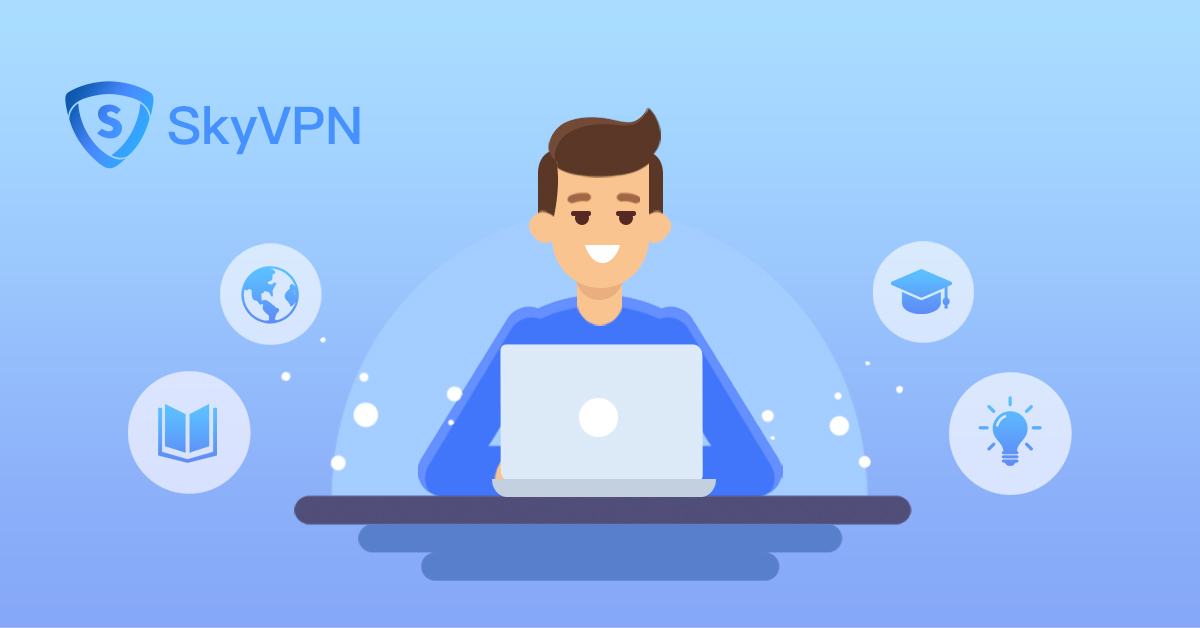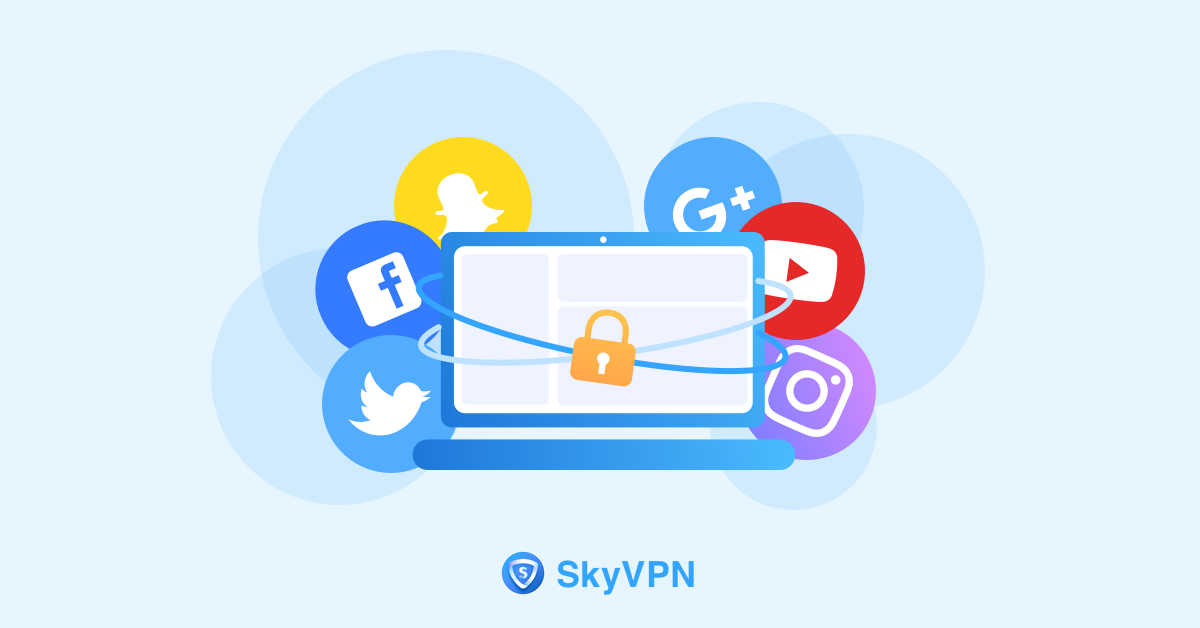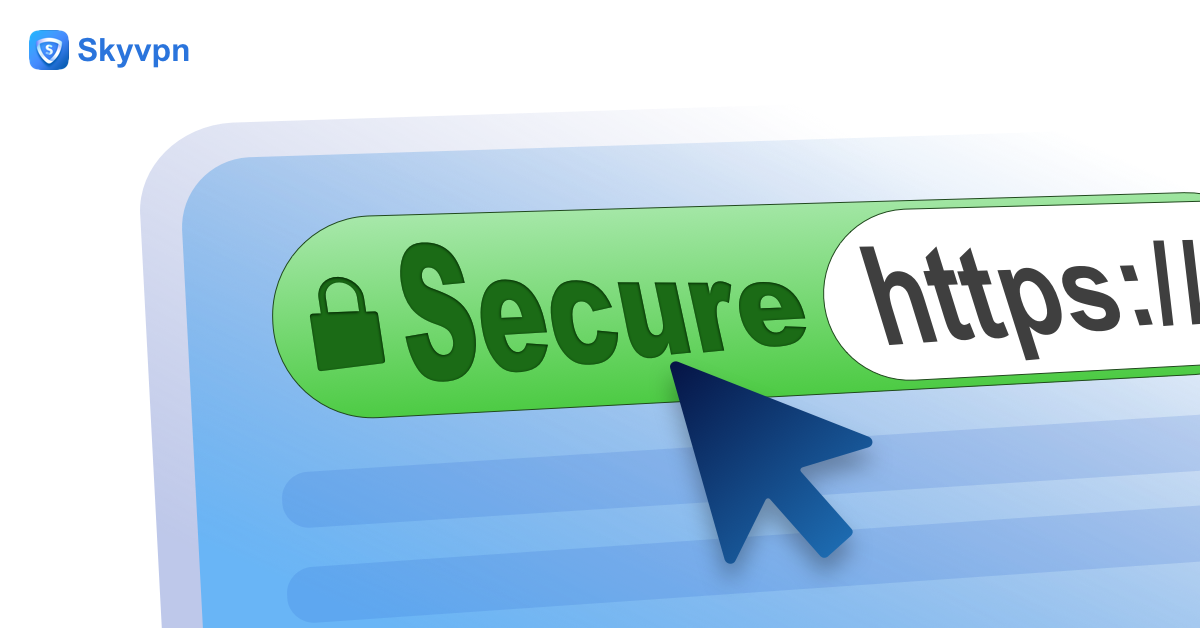
Do you know your school is tracking your online activities?
It may sound scary but it’s terribly true. As you use your school network or WiFi to connect with the Internet, all your online activities will be monitored by the school administrator, including what websites you visit and what you do on them, what files you download from the Internet, and what social media accounts you’re logging in, etc.
As a student, it’s quite necessary to protect your online privacy and security against being tracked by your school.

Your School Can See What You Do on Your Smartphone or Laptop.
Whenever you connect with the Internet via smartphone or laptop, what websites you’ve visited will be known by your school administrator. Moreover, if HTTPS isn’t used for the websites, your specific browsing content can be even visible to your school.
The types of your privacy data that will be visible to your school administrator include:
Your Location Data
Your location may be tracked based on your GPS installed on your device, WiFi connection and public transportation ID card. Your location data is used to automatically track your attendance in class.
Video and Audio Data
This type of privacy data contains students’ images, videos and audios when they stay at school. The data is used to recognize students by the comparison between the accumulated data and the existing data in the database.
Web Browsing Data
All your online activities will be monitored and tracked by your school administrator, including your visited websites, your browsing online content and the search keywords you type in the search engine so that your school administrator will be aware of what you use the Internet for.
Device Application Data
Some invasive software is able to keep log of everything you do on your device, even including the deleted content. The data cover all your online activities on the Internet, the content you leave on your social media account and all the messages as a messenger is used. If you log in your account on some websites with your account information, your account name and password may be tracked as well.

How does Your School Make it to Track Your Online Activities?
First of all, the internet you’re using at the campus is provided by your school, which means all the routers, servers, and firewalls you’re using for online surfing are all from school. Even if the device you’re using belongs to you, your online data will be still visible to a school administrator.
By the way, the truth that school tracks your online activities isn’t anything new. As you sign in to the school network, your school has become your Internet Service Provider (ISP) capable of tracking your online activities based on the IP address. Your school monitors the application situation of school bandwidth so that the bandwidth can be throttled in time.
In a word, your school is totally aware of what you’re doing with the Internet but your school doesn’t let you know since what you do isn’t beyond laws or regulations.
Your school can track your online activities through the following tunnels:
- As you connect with the WiFi at the campus, your school will be able to see what you do on websites as long as HTTPS isn’t used.
- If your school has its own email system, your email will be monitored and tracked.
- Your school will know if you’re using P2P traffic and torrenting can be stopped if you do.
Apart from the tracking within the campus, your school is also able to track your online activity even if you’re staying at home. The COVID-19 pandemic makes virtual learning possible and flourishing and it also adds risks to students’ online privacy and security.
Easy-to-Follow Tips to Stop School from Tracking Your Online Activities
Use HTTPS
Remember to add “HTTPS” to any website you’re going to visit before redirecting. Don’t feel troubled whenever adding extra strings before each website. That’s totally worthwhile when it comes to your online privacy and security.

Use a VPN
That your school can see all your online activities lies in the fact your IP address is assigned and well known by your school. With a VPN used, your IP address will be masked as one that seems like being from somewhere else around the globe so that you’ll be able to escape from your school administrator’s monitor. Another reason why a VPN is a must-have app for students at school lies in its capability to unblock restricted online content. Your school can block everything on the internet that is regarded as useless to students’ study and a VPN can break WiFi restrictions to visit the Internet without boundaries.
Some students worry it’s illegal to use a VPN at school. Don’t worry, a VPN is legal in most schools.
Separate Your Private from Campus Emails
Your school emails should be used for your school things only. Your private email should be used when it comes to your private issues so as to protect your personal information from data breaches.
Wear a Mask if Necessary to Stop Camera from Recognizing You
Your face can be an identity of yours if it is remembered and stored by the camera installed at your school. A mask or a pair of sunglasses are suggested to stop the school camera clearly capturing your face.
Learn about School’s Privacy Policy
You should learn about your school’s privacy policy so as to capture what will be tracked concerning your privacy. As such, appropriate measures, like those mentioned above, can be made to compensate for the risk.
Hide Your Phone in School
A second phone number is suggested to use for online account registration since it stops your privacy from being monitored by prying eyes. After all, too much personal information is linked with your phone number and a second number should be used for temporary use.
FOLLOW US
